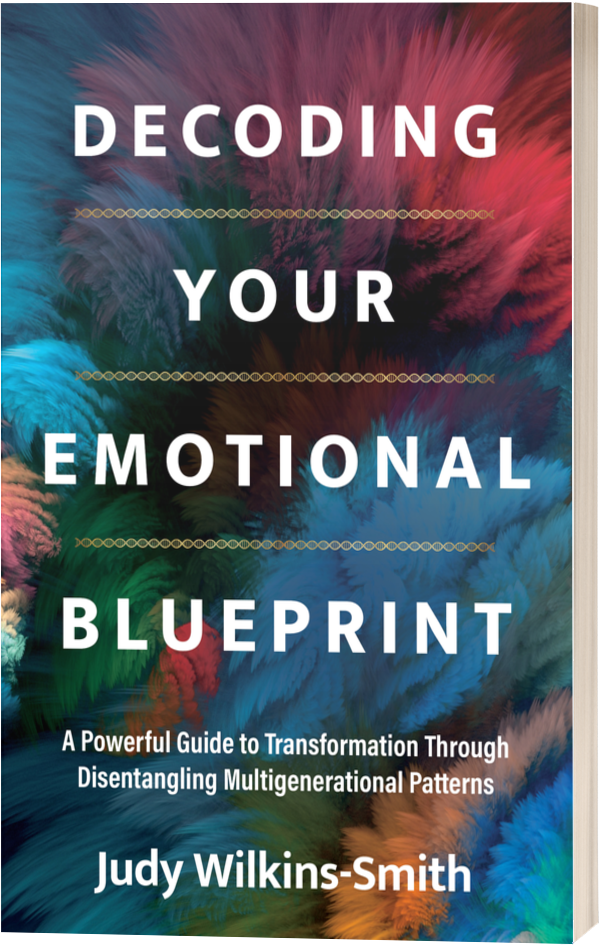Stopping Limiting Family Patterns & Social Patterns
The Game of Life Is a Series of Opening and Closing Doors
We’ve been working on stopping limiting family patterns and negative patterns within our family system for a long time. Sometimes the change happens, and there are other times that it doesn’t. So, let’s talk about the times it doesn’t work and the reasons and consequences of that, especially as they affect family members and family relationships across different family type structures, whether they involve a married couple, single-parent families, or one-parent families.
If we think of patterns as being housed behind different doors, it’s logical to imagine that some of those doors open onto awareness and opportunity and other doors open onto attitudes, thoughts, and actions that don’t serve us or our family structure. Obviously, the doors we want to open are the doors that give us opportunities and growth. The doors that take us back to destructive family pattern behavior that want to rest because they’ve served their purpose are supposed to remain closed.
When a door closes, seriously, leave it closed! Quit trying to open the darn thing again!
When a pattern is done, allow it to be done. Yes, behind each pattern is a generation of previous generations that needed that pattern. It’s a little bit like having an emotional DNA library that connects us to our family history. You can borrow an old pattern for reference, but just like a library book, you don’t want that book to become the only book you ever read in your life. It is there to teach and inform and then be released to benefit future generations.
This is true whether you’re a biological parent, adoptive parent, or single parent working to create better well-being for your children.
Take “Brenda” for example. She always must have two of everything in her pantry. The minute one bag of flour or jar of tomato sauce gets used another is purchased to replace it. Now, this might sound like sensible planning, but when you ask Brenda why she does this, her answer reveals family dynamics that are less than healthy. “I could run out of food and starve to death,” she says, eyes wide and serious, showing the emotional distress that drives her behavior.
When asked “Who starved to death in your family?” she tears up and recalls her great-grandmother who made sure her children did not go hungry during the Great Depression—a period from the first half of the 20th century that affected many american families and created lasting generational patterns—by not eating enough herself. And she died. “Mother and grandma taught me to always always always have two of everything on the shelves,” she says nervously, revealing how family roles get passed down through generations.
This type of experience was common in american life during that era, affecting married-couple families and creating patterns that persist even today stands as evidence of how trauma impacts family life.
Of course, both Brenda’s mother and grandmother suffer from high levels of anxiety and negative emotions. Which is not surprising if you watched your mother starve herself to death as a kid during what could be considered a financial hardship of epic proportions. And her grandmother vowed that would never happen again in her family unit. Her anxiety and her promise got passed down, and now Brenda carries the anxiety and the burden of a promise that is not hers to keep, affecting her sense of identity and adult lives.
These patterns affect many african american families, native americans, and other ethnic group communities who experienced similar hardships, creating lasting impacts on family arrangements across generations.
Despite this, Brenda dreams of owning a new pantry. In fact, she has a scrapbook full of pictures of the most elegant pantries you could imagine. And the style she admires the most is sophisticated and somewhat minimalist. A new pantry was part of the incentive that encouraged Brenda to move out of the family patterns of behavior, and she was at the point of relaxing the pattern’s hold enough to actually have one constructed. And the thought excited her.
The door on the old pattern was closing! This desire for change is common among young adults who seek to break free from limiting patterns, regardless of their family type or whether they come from married-couple families or grew up with a single parent.
But the day the carpenters were supposed to start renovating her pantry, the reality of an emptier, more functional pantry overwhelmed her with anxiety. After all, somebody could die. So, Brenda, even knowing it was just a relationship patterns issue playing out through her, chose to stay loyal to the family and the fear and cancelled the construction project. In her mind it was selfish to want something so contrary to the need for safety that her mother and grandmother had instilled in her.
She even feared that if she indulged her selfish whim that she might call another great depression into being. A neat, uncluttered pantry wasn’t worth that! This type of decision-making shows how deeply ingrained patterns affect our view of marriage, committed relationship choices, and overall family life, often preventing us from achieving the better well-being we seek.
Holding Pattern
If you think this sounds crazy, think again. Every single one of us has patterns that we carry around that do not serve us and no longer make sense, affecting our sense of self and family composition. “George” is another example. He was the CEO of a very large company who would come home every day, rest for an hour, and then sprint off to his second job.
Now, working two jobs may be the unfortunate situation for a lot of people, especially parents of young children in nonfamily households or those in single-parent families, but not the wealthy CEO of a big company who had already established successful career paths and likely had a college education that provided him opportunities.
When I asked him to share his thinking on having a second job, he blurted out that one needed to work very hard and not take things for granted in order to make sure the nuclear family stayed safe. When I pointed out that he had plenty of money, investments, and two homes, he burst into tears saying, “My immigrant father and grandfather worked two to three jobs at a time to get the family on its feet. If they had to work so hard, how dare I come home after one job at the end of the day?” This response showed how personality traits and family dynamics from previous generations still controlled his behavior.
His doctor, his wife, and even his father and grandfather, who were both still alive, were all telling him to slow down before he burned-out and become ill. As we talked, he became aware that the original pattern of extremely hard work was no longer working for anyone in his family structure. He “got it.” And when he did, he quit the unneeded second job and took his whole family, including his father and grandfather, on a much-needed vacation, providing the emotional support they all needed.
This breakthrough often requires family therapy to help individuals recognize how patterns from previous eras no longer serve modern family life, especially as divorce rates and changing family arrangements create new challenges for today’s families.
BUT, like Brenda, here’s what happens when you walk back through those doors to the old patterns. As soon as he brought work and family relationships into balance, he began to get invited to sit on corporate boards. That might have been fine, except that the old pattern of work, work, work snatched him back into the systemic trance. And, before he knew it, he was back at the doctor’s office receiving yet another very stern warning to slow down, showing how destructive family pattern behavior can persist even when we know better.
This cycle affects people across all backgrounds and demonstrates how ethnic differences in family expectations can create similar pressures, whether in traditional American family structures or among people of different races who share common immigrant experiences.
The loyalty to the old pattern was making him ill and affecting his parents’ emotional well-being. And this time it took an equally stern warning from his father and grandfather to “stop or else,” for it to finally sink in. This situation illustrates how modern families face unique challenges that didn’t exist in World War II era families, where survival often depended on extreme work patterns that are no longer necessary in contemporary American life.
Investigation
I invite you to write down a list of patterns you keep going back to and ask yourself the following questions, considering how they affect your family members and intimate relationships, whether you’re in your first marriage, a committed relationship, or exploring new marriages after previous short-term relationships:
- What or who am I being loyal to holding onto this pattern?
- What is the fear driving the pattern, and how does it affect my expectations of romantic love or ideal of romantic love?
- Where have I seen a loved one struggle and how have I perpetuated that struggle within our family system?
- What promise did I make as a child that I would do (or not do) “X,” and how does this impact my view of marriage or passionate romantic love?
- What is this costing me and my family unit in terms of better well-being?
- Where have I opened a closed door?
- Who was I being loyal to when I did that, and how does it affect future generations and the cultural importance of marriage in our family?
It takes a great deal of courage to walk through a new door and embrace a new pattern that might seem contradictory to the original, especially when it challenges established family roles and generational patterns that have shaped our sense of identity. But life demands growth. Systems need it, and you are the one called to make the change happen. Family systems or social systems, systems in general are begging for us to let closed doors stay closed so that new doors may open, allowing family members to develop healthier relationship patterns and break free from negative patterns that no longer serve them.
This is particularly important in today’s world where we see higher rates of divorce, changing proportion of families that include same-sex marriages, interracial marriages, and diverse family arrangements that require new approaches to creating lifelong marriage and security of marriage bonds.
Systems don’t mind if we take a quick peek to learn from the past and understand our family history. But history is there to educate us, not to trap us in destructive family pattern cycles. The future has its own place and is asking us to see it and go for it. For it is only when we have the courage to open new doors that great advances in humanity occur, benefiting not just our immediate nuclear family, but future generations who will inherit the family structure and family dynamics we create today.
Whether we examine families at the median age of years of age when major life transitions occur, or consider how american marriages end and begin anew, the important ideal remains the same: creating healthier patterns that serve both current and future generations across all family type structures in our diverse american family landscape.
A Systemic Expert & Executive Coach, Judy Wilkins-Smith assists high-performance individuals, Fortune 500 executives, and legacy families to end limiting cycles and reframe apparent challenges into lasting breakthroughs and peak performance by guiding them through and beyond hidden Emotional DNA patterns. Her books Decoding Your Emotional Blueprint and The Hidden Power in Your DNA are two exciting guides on your journey to purpose.
Access your free chapter of Decoding Your Emotional Blueprint












